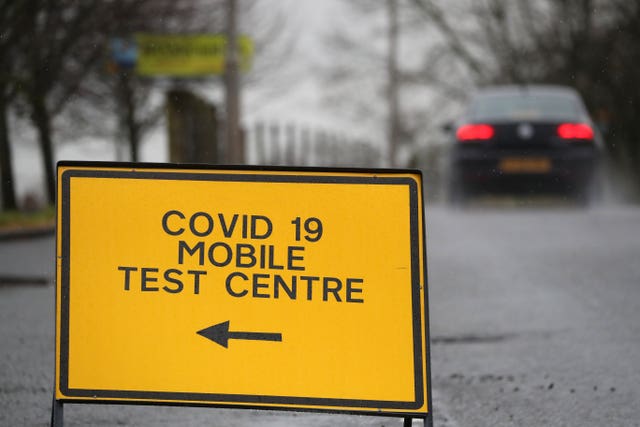‘We may be dealing with Covid into the next decade’ Midlands expert tells MPs
Councils are expecting to deal with cases of Covid-19 into the 2030s, a Midlands expert has told MPs.

Dr Richard Harling, director of health and care at Staffordshire County Council, said councils will be dealing with the virus “for a long time”.
Meanwhile, Dr Harling said people should be offered a financial incentive to get a Covid-19 test.
Councils should also be given powers to enforce isolation rules, instead of the police, he told the Commons Science and Technology Committee.
“I expect to be dealing with cases of coronavirus throughout the 2020s, into the 2030s,” he said.
The only question is how many (cases). Under a best-case scenario hopefully, it will be relatively unusual.
“In a more pessimistic scenario, we might be dealing with much larger volumes.
“I think there is an opportunity now to think about how we continue the test and trace and isolate endeavour for years and decades and start looking ahead.”
When asked whether local authorities should be given more powers to deal with the crisis, Dr Harling said: “I can think of two sets of powers that might be considered.
“The first one is our ability to offer incentives to people to engage with the system.
“There has been quite a lot of speculation recently that going to have a test is not something people necessarily have an incentive to do because if you test positive you have to isolate which is disruptive to your life.
“So the ability for local authorities to offer perhaps a financial inducement to get tested , or some other sort of incentive to encourage people to come forward if they have symptoms, or perhaps even if they don’t, so that we are maximising the number of cases we detect.”
Meanwhile Dr Harling said that councils should be given more enforcement powers to deal with people who fail to comply with Covid-19 rules.

Current regulations are “a little clumsy and overbearing”, he said, adding: “We are relying on the police for enforcement and thinking about sustainability long-term. I am not sure we want to be tying up police resources in chasing down Covid non-isolators.”
Dr Harling also said that NHS Test and Trace is “not as responsive” as hoped.
He told MPs: “The relationship with NHS Test and Trace has improved over the last few months but they are still relatively remote. We don’t have well developed relationships with for example a local account manager, which would be someone we can turn to with issues or problems.
“Again if residents raise issues or queries with NHS Test and Trace there is quite a long chain of command for it to go all the way up and then for the answer to come all the way back down.
“It is perhaps not as responsive yet as we would like to see it.”
Meanwhile Greg Fell, director of public health at Sheffield City Council, told MPs that people are “more likely” to pick up a call from a local phone number.
Dr Harling said that local contact tracers have local knowledge and that encouraging people who test positive to isolate, along with their contacts, will benefit them directly.
Mr Fell also told MPs: “Locally we have stood up a local contact tracing service to support the national contact tracing effort.
“What we have found is that people respond much better to a local number, for reasons I don’t know.”
Mr Fell added: “We focus on the so-called failed contacts – the people who NHS Test and Trace are unable to reach at 48 hours.
“We have the capacity to take on 50 cases a day,” he said, adding that not only do they ask contacts to isolate, but council workers can also look after a contact’s welfare checks – to ensure that people have the support they need to isolate.
“We manage to reach in the order of about 75-80% of contacts that are unable to be reached by NHS Test and Trace.”





